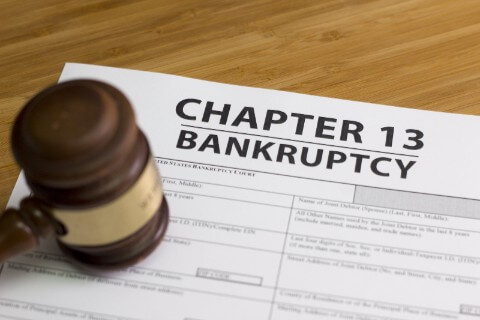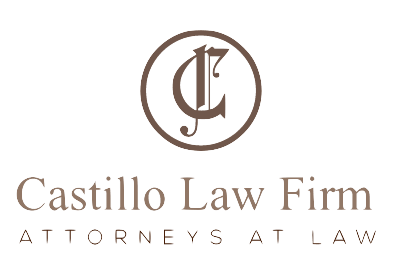Bankruptcy
What is Bankruptcy?
Most people think of bankruptcy as a sort of “do over.” However, the U.S. Bankruptcy Code can do so much more than that. Did you know, for instance, that through a bankruptcy you could save your home, get rid of certain business debts (and still keep operating the business), get rid of some outstanding income and certain taxes, get rid of a second (or 3rd) mortgage, remove judgment liens from your property, and even pay back your mortgage arrears through the bankruptcy court? These are only a few of the examples of what the Bankruptcy Code can do for those in need of help from the overwhelming burdens of debt.

Chapter 7

Chapter 7 is most commonly referred to as the “liquidation” bankruptcy because the discharge order typically “liquidates” all of the debtor’s unsecured debts while allowing them to keep most exempt assets. However, there are very specific income requirements to qualify and the debtor will need to plan ahead very carefully with his/her attorney to make sure that they have enough exemptions to keep all of their important assets.
Eligibility
Individuals are qualified as Chapter 7 Debtors if they live within the jurisdiction of the District Court, have a place of business, or property in the United States. Note that citizenship is not required. Additionally, the debtors must not have too much income as determined by the “means test.” To properly evaluate a debtor’s eligibility under Chapter 7, contact our office for a free evaluation.
Chapter 13

If you are suffering from a burden of debt, your income does not exceed the means test, and simply want a “do over,” then a Chapter 7 bankruptcy will probably do the trick for you. However, if you are someone who does not qualify to file a Chapter 7 due to income, have assets which cannot be protected and would like to keep those assets, are behind on your mortgage payments, drowning in payroll taxes, or want to reduce the principal owed on your vehicle to current value then Chapter 13 could be the answer.
Eligibility
Eligibility depends largely on the amount of unsecured and secured debts. Under 11 U.S.C. Section 109(e), an individual is eligible to file under Chapter 13 as long as their unsecured debts do not exceed the amount of $394,725.00, and their secured debts are not over $1,184,200.00. There are other eligibility requirements related to income, type of debtor, prior bankruptcy filings and/or dismissals. A Chapter 13 bankruptcy involves a monthly payment plan over a three (3) or five (5) year repayment period and requires careful planning with your bankruptcy attorney to make sure the long-term requirements under the Bankruptcy Code will be worth the struggle for you.
Chapter 11

If you exceed the minimum debt requirements for a chapter 13 bankruptcy, or are a corporation, but might still otherwise benefit from a repayment plan, then Chapter 11 may be right for you. Chapter 11 is typically used to reorganize a business, which may be a corporation, sole proprietorship, or partnership.
A corporation exists separate and apart from its owners, the stockholders. The chapter 11 bankruptcy case of a corporation (corporation as debtor) does not put the personal assets of the stockholders at risk other than the value of their investment in the company's stock.
A sole proprietorship (owner as debtor), on the other hand, does not have an identity separate and distinct from its owner(s). Accordingly, a bankruptcy case involving a sole proprietorship includes both the business and personal assets of the owners-debtors.
Like a corporation, a partnership exists separate and apart from its partners. In a partnership bankruptcy case (partnership as debtor), however, the partners' personal assets may, in some cases, be used to pay creditors in the bankruptcy case or the partners, themselves, may be forced to file for bankruptcy protection.
Section 1107 of the Bankruptcy Code places the debtor in possession in the position of a fiduciary, with the rights and powers of a chapter 11 trustee, and it requires the debtor to perform of all but the investigative functions and duties of a trustee. These duties, set forth in the Bankruptcy Code and Federal Rules of Bankruptcy Procedure, include accounting for property, examining and objecting to claims, and filing informational reports as required by the court and the U.S. trustee or bankruptcy administrator (discussed below), such as monthly operating reports. 11 U.S.C. §§ 1106, 1107; Federal Rules of Bankruptcy Procedure § 2015(a). The debtor in possession also has many of the other powers and duties of a trustee, including the right, with the court's approval, to employ attorneys, accountants, appraisers, auctioneers, or other professional persons to assist the debtor during its bankruptcy case. Other responsibilities include filing tax returns and reports which are either necessary or ordered by the court after confirmation, such as a final accounting. The U.S. trustee is responsible for monitoring the compliance of the debtor in possession with the reporting requirements.
Get A Free Assessment
Please keep in mind that these are just some introductory remarks about the type of bankruptcies available to most of our clientele. To make an informed decision about whether or not to file for bankruptcy, and under what chapter will benefit you the most it is best to make an appointment with us so that we can discuss your case in detail. We look forward to helping you find that better road ahead!
Call us at (626) 331-2327 to schedule a free, thirty minute, no-obligation appointment to discuss your case in detail.
